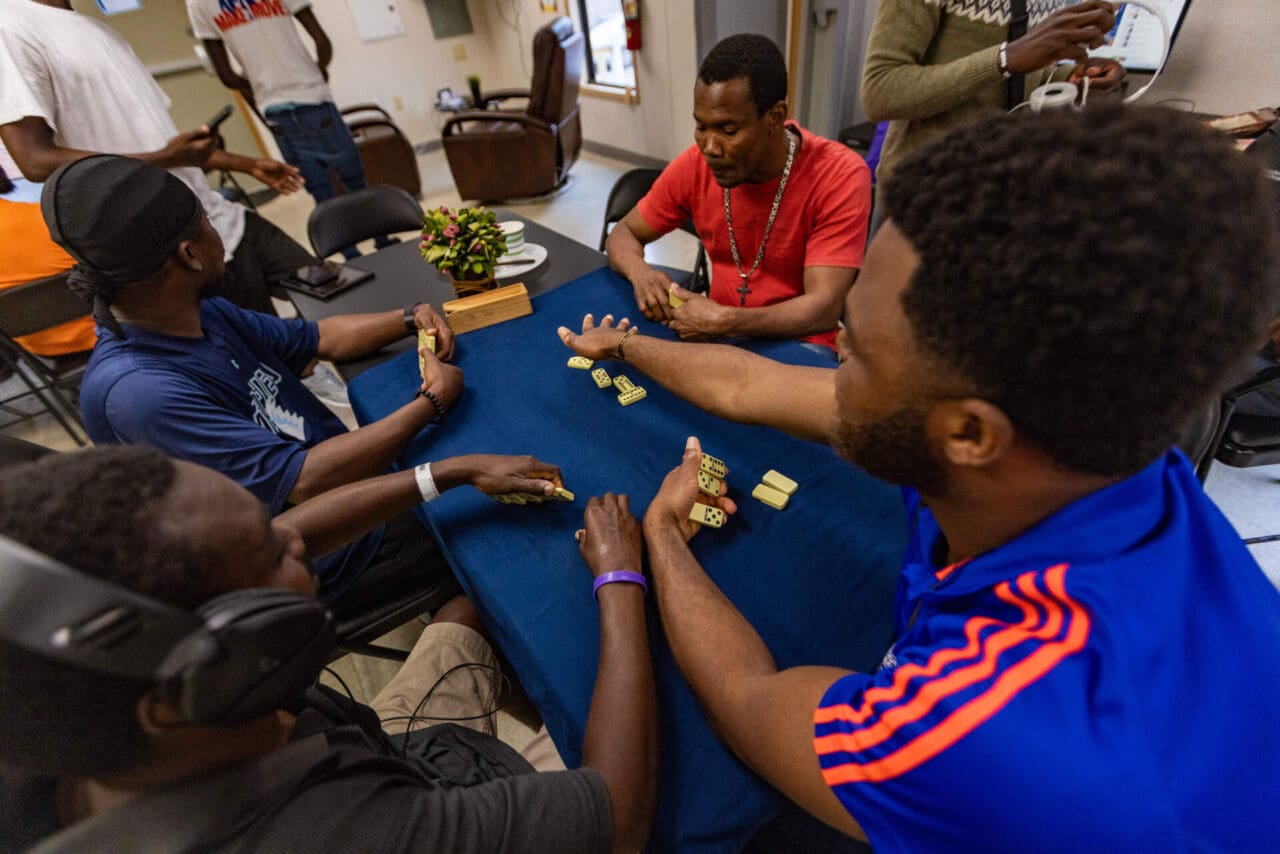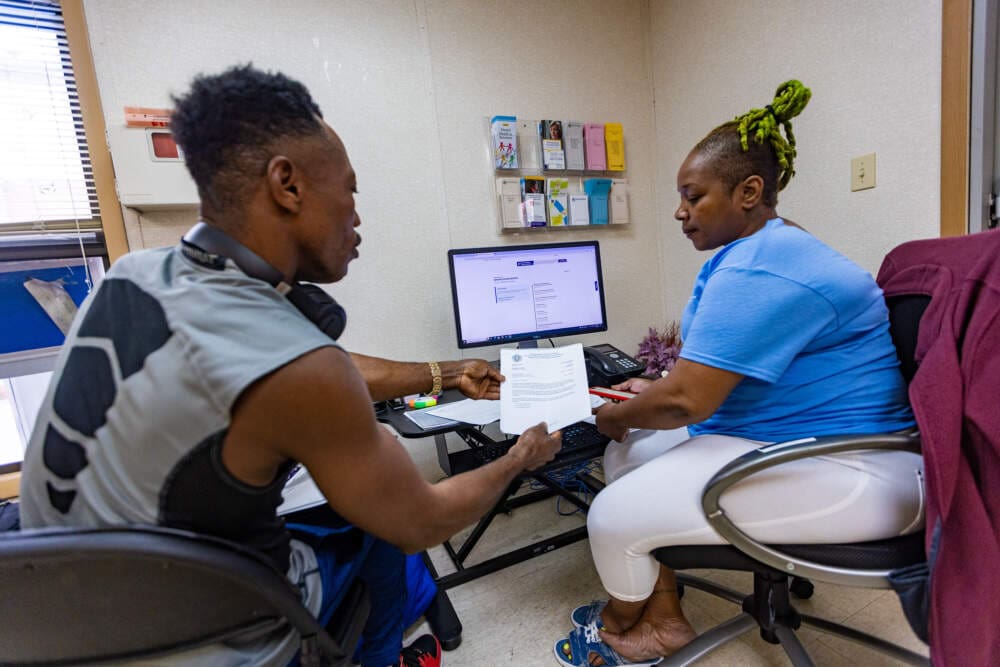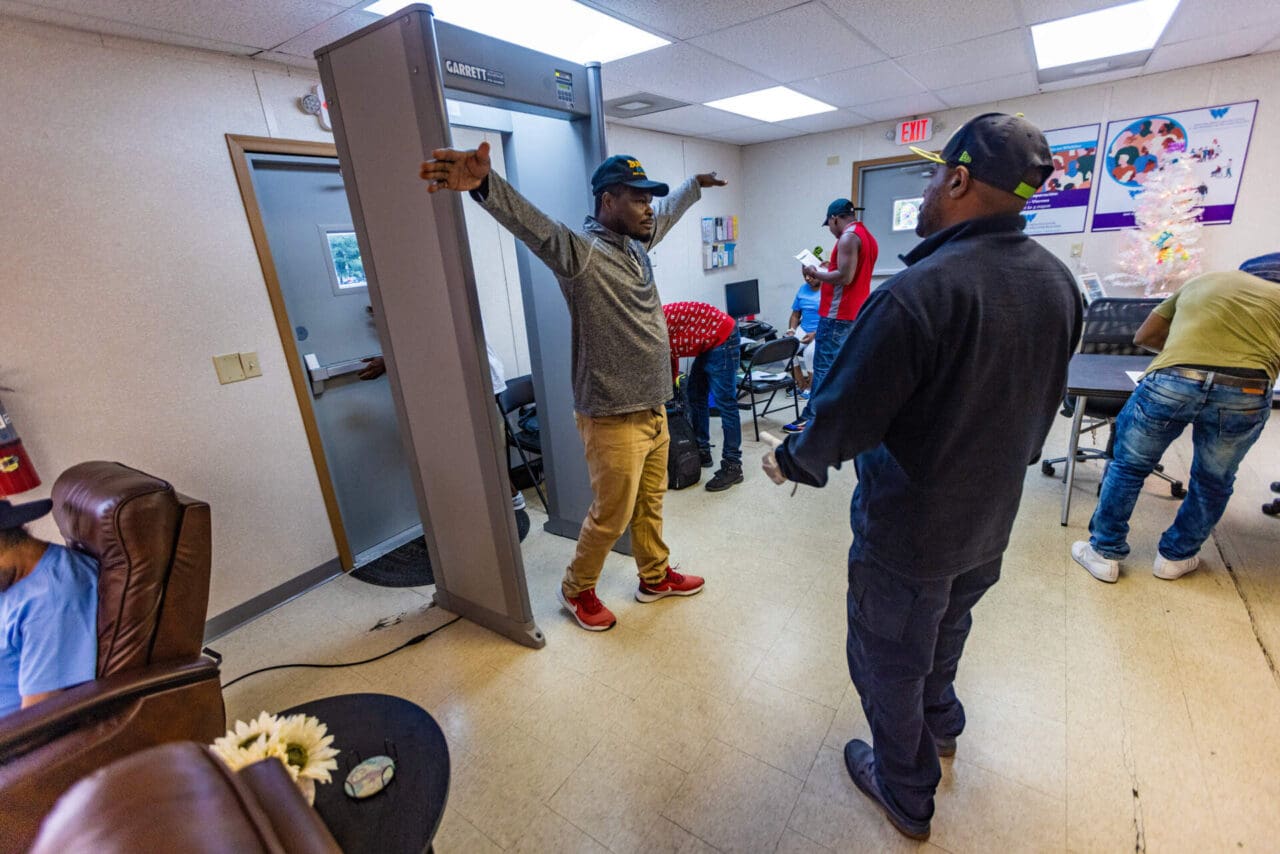By Simón Rios
As the state shrinks how long families can spend in its shelter system, housing officials have few answers about where people can go if they are among those who reach a new five-day stay limit.
Boston’s private or city-run homeless shelters are not set up for children. These shelters also already house many adults who came to the state without families amid the surge in new arrivals to Massachusetts.
WBUR is a nonprofit news organization. Our coverage relies on your financial support. If you value articles like the one you’re reading right now, give today.
Lyndia Downie, who heads the city’s largest adult homeless shelter, said migrants now make up 40% of new guests at the Pine Street Inn. That’s something she’s never seen in four decades at the South End shelter, she said.
The state’s five-day cap on overflow shelter stays for those without “priority” status begins Aug. 1, and it has set off a wave of angst about where people — both families and individuals — can find help.
“I think it’s an attempt on the state’s part to send a message that the shelters are full,” Downie said. “Now the question, of course, is where are people going to go? And I don’t wholly know the answer to that.”
Massachusetts officials are grappling with the needs of thousands of migrants who have come to the state over the past two years in search of better lives. Many secured a temporary roof over their heads, thanks to the state’s right to shelter law. But now, as migrants keep arriving, the state-run emergency family shelters are at full capacity, housing around 24,000 people. About half of them are migrants.

The shelter law was intended to guarantee help for families; individuals were never covered. Some question whether the statute was intended to include migrants. It doesn’t specify one way or the other.
The law has left single immigrants, many of them young men, seeking shelter alongside populations facing other major challenges, from eviction to mental illness and substance use. The state’s segregated system also does not offer them the kind of supports families often get. Some of the migrants have turned to places like Whittier Street Health Center in Roxbury.
Inside a day center’s efforts to help migrants
On a recent weekday at the day center, a group of Haitian men played a game of dominoes. In another room, case worker Fedelyne Maurice helped people navigate a ribbon of red tape: the immigration system, housing, health care.

On that particular morning, she was helping one man locate his work papers, which seemed to be lost in the mail.
“The card, it’s in transit, but it says since July 13th, so I’m trying to see if I can get ahold of the Somerville post office to see if they have it,” Maurice said.
Work is key to income and finding longer-term housing. Downie said people who can’t get into a shelter could end up in a number of scenarios — including so-called “reticketing,” where the state offers to pay for plane tickets out of Massachusetts.
“You will have a handful of families who might take up the state on the offer,” she said, if they have friends or family in other states. But many people could wind up back at the airport or in hospital emergency rooms, places where officials have tried to discourage migrants from spending the night.
“I think the state’s between a rock and a hard place,” Downie said.
A state spokesman said shelter staff will work with migrant families to help find alternative housing options, such as subsidies for renting apartments. But some advocates say the state is falling short of its obligations under the law.

Chris Norris, head of Metro Housing Boston, which helps place migrants in apartments after they leave shelters, said Massachusetts’ right to shelter law made a statement four decades ago: That families should not live on the streets — and children should have a safe place to stay.
Now, he said, that stance appears to be changing in a fundamental way, starting with Gov. Maura Healey last year capping the number of families the state would house and more recently imposing limits on how long people can stay in shelter.
“No one in their right mind believes that families who are homeless can find housing in five days,” Norris said.
Even before migrants started arriving, families were spending more than a year in emergency shelters because of the lack of affordable housing, he said.
With the new arrivals, the scale of the challenge has changed, Norris added, “but not the underlying reality.”
This segment aired on July 26, 2024.